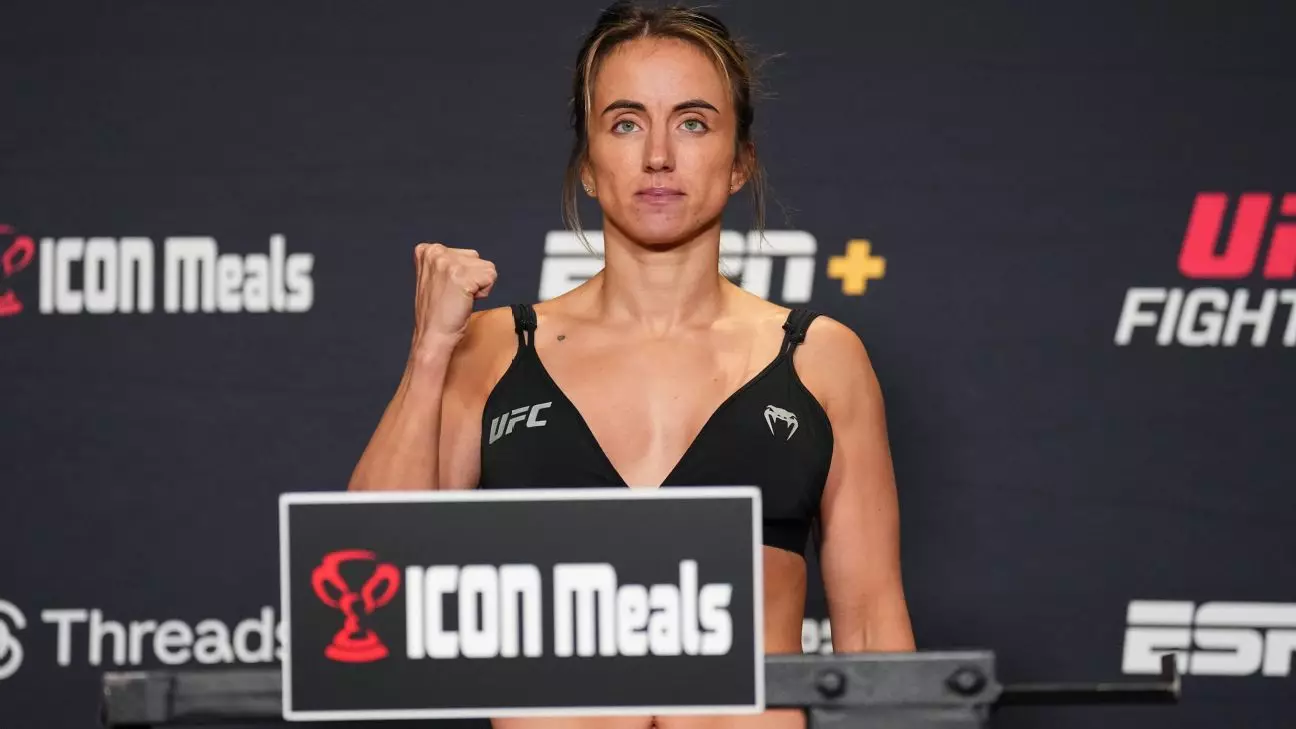The fight night intended to showcase the potential of rising talents in women’s flyweight took an unforeseen twist. UFC Fight Night in Las Vegas was set to be the stage for Maycee Barber and Erin Blanchfield, a bout that had garnered considerable attention within the MMA community. However, just moments before the fighters were slated to enter the Octagon, the entire event was thrown into disarray. Maycee Barber was deemed unfit to compete, a decision that left fans and fighters alike in a state of shock.
Barber’s journey leading up to this match was laden with setbacks; a year away from the cage due to a combination of injury and a serious illness had already raised concerns about her readiness. Missing weight added to the tension and drama surrounding her return. The fighter came in slightly over the limit, which cost her a significant portion of her purse. Such occurrences are not uncommon in the UFC, yet each incident carries with it the weight of disappointment not just for the athletes, but for the fans who anticipate exhilarating bouts.
The Ripple Effects of Cancellation
Erin Blanchfield’s reaction speaks volumes about the unpredictability of fight night. When UFC chief business officer Hunter Campbell entered her dressing room with a grave demeanor, the ominous atmosphere hinted at something catastrophic. Blanchfield’s disbelief and disappointment were palpable, capturing a moment that reflects the emotional toll such cancellations can have. Fighters dedicate countless hours to preparation, and when the chance to showcase their skills is snatched away, it can lead to feelings of frustration and disillusionment.
Rather than allow this setback to define her, Blanchfield took a proactive stance, swiftly calling for the UFC to reschedule her with another opponent. Her ambition is to keep climbing the ladder toward a title shot, demonstrating a competitive spirit that many fighters possess—a drive to overcome obstacles and remain focused on their goals despite the setbacks they face.
Looking Forward: The Implications of Fighter Health
Barber’s situation sheds light on a critical issue in the realm of mixed martial arts: the importance of fighter health and the protocols in place to ensure safety. The UFC has made efforts to prioritize the well-being of its athletes; medical clearance is not just a formality but a necessary protective measure. Each fighter’s health must be placed at the forefront, no matter the ramifications of postponing a fight.
In an era where the stakes are high and the allure of competition is saturated with pressure, fighters often push themselves past their limits. This tension can lead to unpredictable outcomes and unfit athletes stepping into the cage. The UFC is currently faced with the task of balancing the thrill of the sport with the health risks that come with it.
Blanchfield’s refusal to consider a rematch with Barber also highlights a broader trend within the sport. Fighters increasingly seek to maximize their opportunities for advancement and avoid the potential frustrations that come with lingering battles against opponents who may not be in peak condition. The unpredictability of injuries and cancellations is part of the sport, yet athletes are motivated to stay on course and pursue their ambitions in the fiercely competitive environment of the UFC.


Leave a Reply